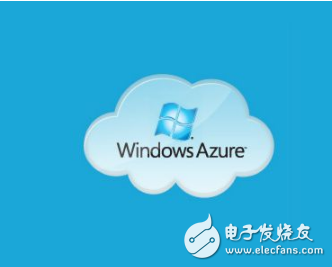Microsoft Azure has become the first global cloud provider to deploy AMD EPYC (also known as "Zen") processors. The EPYC processor is now integrated into Microsoft Azure’s next-generation L-series virtual machine, specifically the Lv2 series. This marks a significant milestone in cloud computing, as it introduces a new level of performance and scalability for storage-intensive workloads.
AMD recently announced the first public cloud instance powered by its EPYC processors. Microsoft Azure has already deployed these processors in its data centers for the latest L-series virtual machine previews, which are optimized for storage workloads. The Lv2 virtual machine family will take full advantage of the high core count and advanced connectivity features offered by the EPYC processors.

Scott Aylor, AMD's Global Vice President and General Manager of Enterprise Solutions, stated, “We are excited to partner with Microsoft Azure to bring AMD EPYC processors into their data centers. By deploying EPYC in Azure, we are delivering superior performance for storage and other workloads, giving users a competitive edge. In 2018, we look forward to continuing our collaboration with Microsoft Azure on more innovative projects.â€
Corey Sanders, Director of Microsoft Azure Computing, added, “We have adopted AMD’s new EPYC processor in Microsoft Azure and deployed it to our next-generation L-series virtual machines. The Lv2 series is designed for high I/O intensive storage workloads, making it an ideal choice for customers with demanding applications. Our deep collaboration with AMD during the design of the next generation open source cloud hardware for the Olympus project has been instrumental. We believe the Olympus project will serve as the foundation for future innovations from both Microsoft and AMD. We are eager to explore more use cases that leverage the high core density, memory bandwidth, and I/O capabilities of the EPYC processors.â€
The Lv2 series uses the AMD EPYC 7551 processor, which runs at a base frequency of 2.2 GHz and can boost up to 3.0 GHz per core. With 128 PCIe lanes per processor, AMD provides over 33% more connectivity compared to traditional two-socket solutions, making it ideal for handling large numbers of NVMe drives.
The Lv2 virtual machine supports between 8 and 64 vCPUs, and a 64-vCPU VM can directly access up to 4TB of memory. These configurations come with default support for Azure Premium SSDs and include accelerated networking capabilities to ensure maximum throughput across any cloud environment. Combined with the unique strengths of the EPYC processor, the Lv2 series is perfectly suited for storage-heavy applications.
The Lv2 series is based on the Olympus project design introduced by Microsoft a year ago. The Olympus project represents Microsoft’s next-generation ultra-large-scale cloud architecture, setting a new standard for open-source hardware development within the Open Compute Project community.
Auxiliary Equipment For Plastic Recycling Machine
High-Quality Auxiliary Equipment For Plastic Recycling Machine,Customizable Auxiliary Equipment For Plastic Recycling Machine,Advanced Technology In Auxiliary Equipment For Plastic Recycling Machine,Auxiliary Equipment For Plastic Recycling Machine Manufa
Zhejiang IET Intelligent Equipment Manufacturing Co.,Ltd , https://www.ietmachinery.com